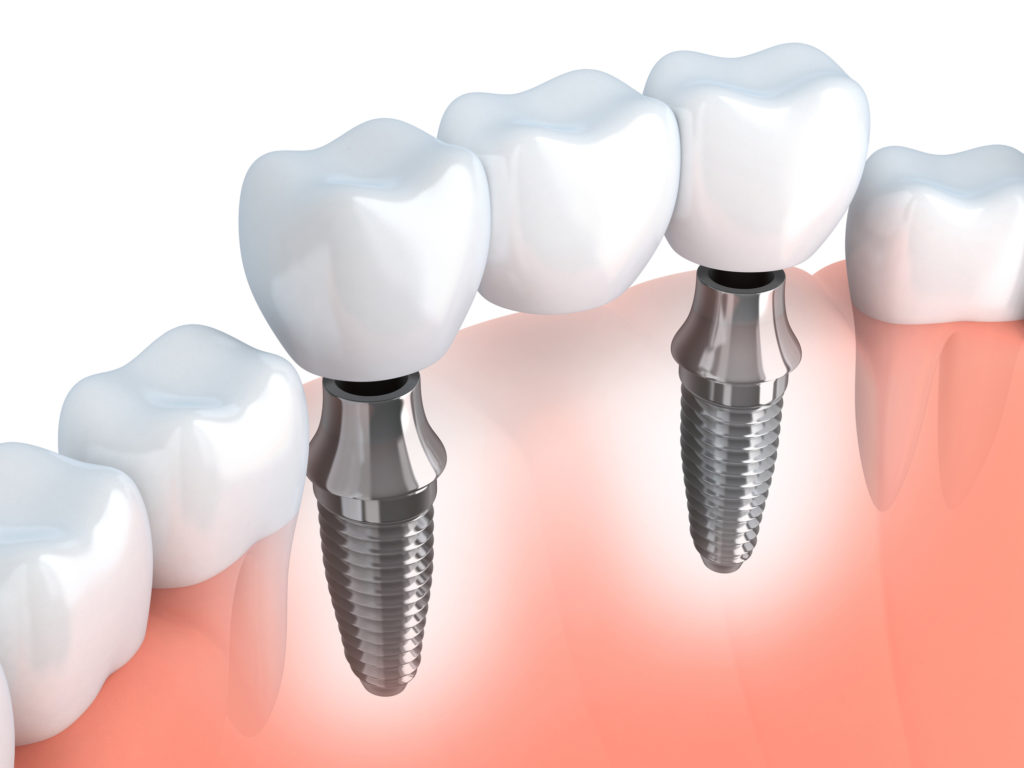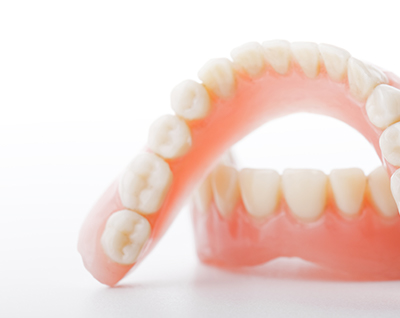Implant-retained dentures are a solution for patients with missing teeth. Unlike standard dentures, retention dentures are supported by implants, making them more secure.
Implant-retained dentures provide many benefits, including improved confidence and preservation of bone and gums. They do not require adhesive, so they eliminate the slipping and sliding of regular dentures, providing stability while eating and talking so you are not limited in the foods you can eat. Read on to discover the types of retention dentures and how to care for them.
How Do They Work?
There are multiple types of retention dentures, and your dentist can help you determine which is best for you by evaluating your oral health and discussing your individual goals.
Ball-Attachment Dentures
These dentures are a good solution for patients who are missing lower teeth. The ball-and-socket design allows you to snap the denture on and remove it for cleaning.
The first step in getting ball-attachment dentures is an examination of your jaw structure. Your dentist will make sure you have enough bone to support the dentures. If not, they may recommend a bone graft, in which grafting material, made of either synthetic or natural bone, is attached to the bone to repair the jawline.
During the procedure, the dentist makes small incisions in the gums, creates channels in the bone using a small drill, and places the ball attachments in the channels. After the anchors are secure, the dentures can be snapped into place.
Bar-Attachment Dentures
These dentures are another good solution for people missing lower teeth. Like with ball-attachment dentures, patients need an examination of their bone structure to make sure they’re a good candidate.
During the procedure, the dentist will place four to six implants into the lower jaw. After the area has healed, they will attach a custom-made support bar to the implants and attach the prosthetic teeth to the bar. These dentures are more secure than ball-attachment dentures, but can still be removed for maintenance and cleaning.
Permanent Dentures
The final option for patients looking to get implant-secured dentures is permanent dentures. These dentures are attached to several implants and held in place with screws or clasps that are secured to a support post or bar. These dentures are not removable.
What if I’m Missing Upper Teeth?
The upper jawbone is not as hard as the lower jawbone, so in order to support retention dentures, you will need more implants. Instead of dentures, your dentist may recommend conventional implants so that the roof of your mouth isn’t covered. Consult with your dentist to find the right option for your needs.
How Do I Take Care of Retention Dentures?
Just like natural teeth, your dentures need to be taken care of and cleaned regularly. Without cleaning, over time, dentures can develop a layer of food particles and residue, making them appear discolored. Additionally, proper cleaning can also prevent problems like gum disease, which can lead to bone loss around the implant, and infection, which can cause the implants to fail. Implant-retained dentures do not need to be removed at night, so you don’t have to worry about losing or misplacing them.
Retention dentures can be brushed with a soft-bristled toothbrush and non-abrasive toothbrush, just like natural teeth. You can also use a water flossing device or small brush tool to clean hard-to-reach areas, like the spaces between the gums and the dentures or between the teeth.
Patients with dentures can also benefit from professional cleanings, exams, and check-ups. This ensures that every surface of the denture is properly cleaned and the health of your gums and jawbone is preserved.
Implant-Retained Dentures at Jenson Dental
At Jenson Dental, Dr. Richard H. Jenson and his team are committed to providing patients with the best dental care. In addition to dentures and implants, we offer general dentistry such as cleanings, fillings and crowns, extractions, root canals, and sealants, as well as cosmetic dentistry procedures such as veneers, teeth whitening, and full-mouth restoration.
If you’re considering retention dentures or other dental care, contact us to schedule a consultation or appointment. We pride ourselves on helping people maintain their dental health and achieve their smile goals through progressive and preventative dentistry.





